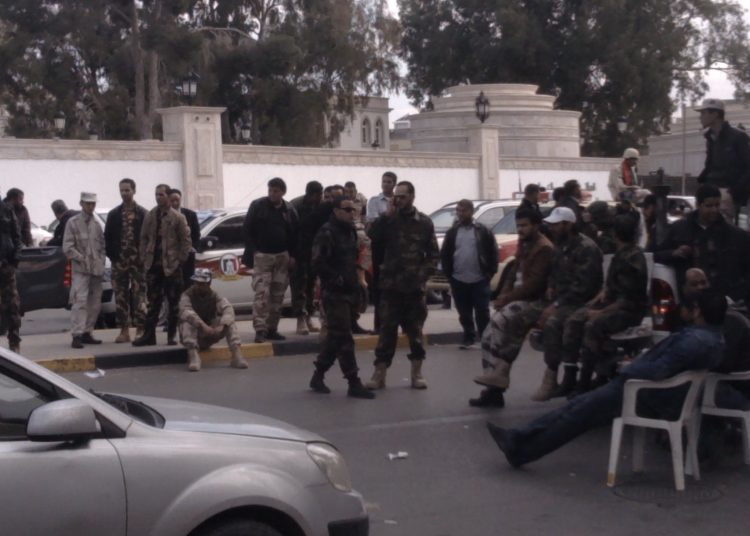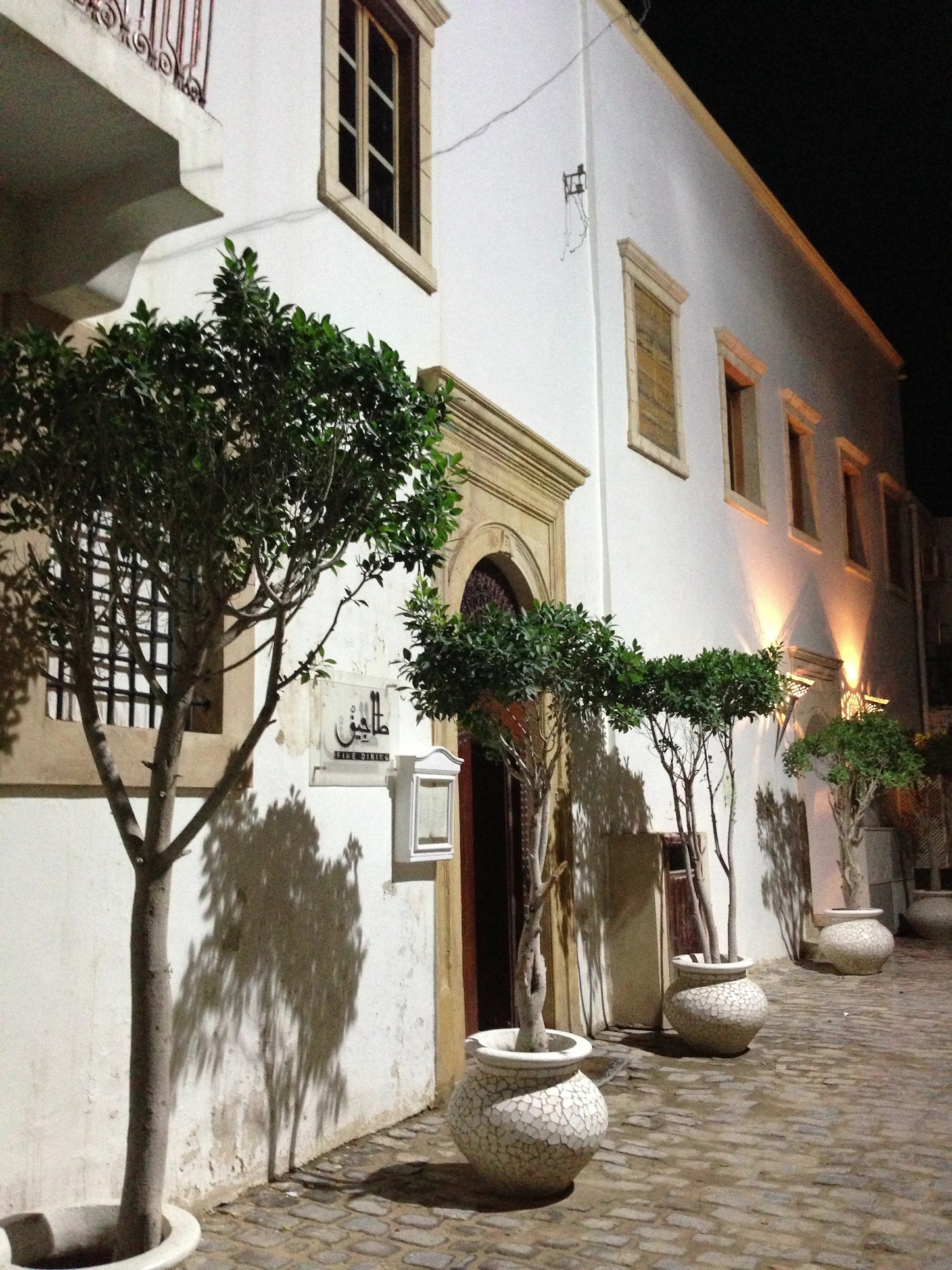By Ahmed Alsharif.

Tripoli, 3 January 2013:
Tuesday morning. First day of the New Year. The Supreme Security Committee (SSC) employees closed the main . . .[restrict]road to the General National Congress (GNC) and protested against the Minster of Interior’s latest decision to cease paying their salaries and to dissolve the SSC.
“Please! Give me the chance to talk,” GNC member Salah Jaouda shouted as a group of protesters circled him inside the GNC yard. “We haven’t been paid for months”, the protesters complained to Jaoda, explaining the risks they had to take protecting the capital.
Jaouda tried to explain that many of the SSC employees had other jobs and were using the SSC as a second pay cheque. He also told them that their signed temporary contracts with the SSC had ended last August, and since there is no official extension to their contracts their security organisation was officially outside the law.
Jaouda invited representatives of the protesters to discuss their demands inside, but as soon as they entered another group of protesters tried to breach into the GNC. However, their attempt was stopped by the security guards.
More than a week ago another group started a sit-in in front of the GNC building, demanding that a political isolation law be passed. A woman amongst the group shouted, “he’s the killer of my son” in shock after she recognized who she claimed to be the murderer of her son protesting with the SSC employees. After a verbal exchange, the woman’s brother came and took the man away as if he had arrested him.
The situation was intense outside as the protesters shouted “No to the police, yes to the SSC”. Then the mob of SSC protesters suddenly attacked the main gate, gaining entrance to the main building.
GNC member Huda Albannani said on her Facebook page that “we are surrounded”, and explained how she had to flee through the bushes to gain safety.
GNC members Abdel Fatah Habloos and Tawfik Shohaby claimed that they were attacked by the mob that broke in.
I, as a witness, left the scene after getting caught recording footage of the break in.
Minister of Interior Ashour Shuwail was later reported as saying that the government had increased the number of committees processing applications to join the official forces and that it will be offering police training to those who want to join the police and that the ministry was willing to absorb all the SSC employees.
The SSC was the main security body after the liberation of Libya. It was intended to function as a temporary solution until the official state security institutions were resurrected. Their contracts ended officially in August 2012, but a verbal extension was given to them until the end of 2012.
The views expressed in Opinion articles do not necessarily represent those of the Libya Herald [/restrict]





